Audi
is set to introduce a turbocharged V6, shared with the Porsche Panamera
in four new performance cars, including a new R8 model
by Greg Kable
5 October 2017
An Audi R8 has
been spotted testing on the continent using a V6 engine, which will be
offered in a new entry-level variant to be launched next year.
The twin-turbocharged 2.9-litre V6 petrol unit is the same as the one used in the Porsche Panamera, Audi RS4 and RS5, and it's also due in the next Q5 RS.
It's a 90deg engine that has been developed in a joint venture
by Audi and Porsche as part of a new modular engine family known under
the working title KoVoMo.
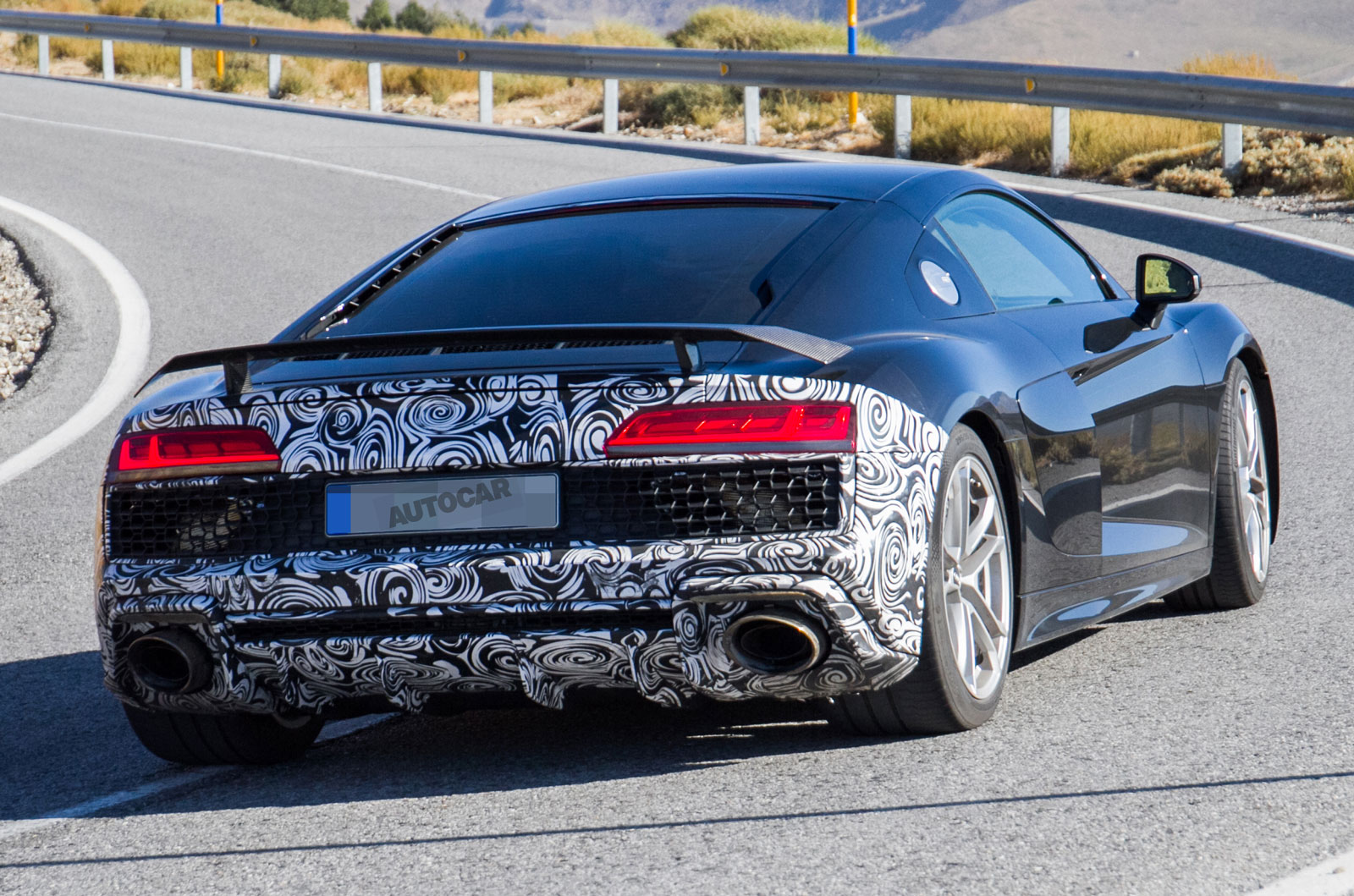
The new turbocharged V6 motor fills the void left by Audi’s older,
naturally aspirated 4.2-litre V8 petrol engine. Audi’s V8 has not been
offered with the Mk2 R8 because of what Ingolstadt officials describe as
a combination of the high costs of updating it to meet future emissions
standards and concerns in markets such as China, where road tax is
linked to engine capacity.
In the latest Panamera 4S, the new V6 engine delivers 434bhp at
5650rpm and 405lb ft of torque between 1750rpm and 5500rpm when running a
relatively low 0.4bar of turbocharger boost pressure.
With subtle tweaks, including greater boost, the joint-venture engine
is claimed to offer more than 500bhp and up to 500lb ft, although it
has yet to be confirmed what output Audi has settled on for its quartet
of new performance models. Audi officials have told Autocar that the V6
unit will come with more than one power output.
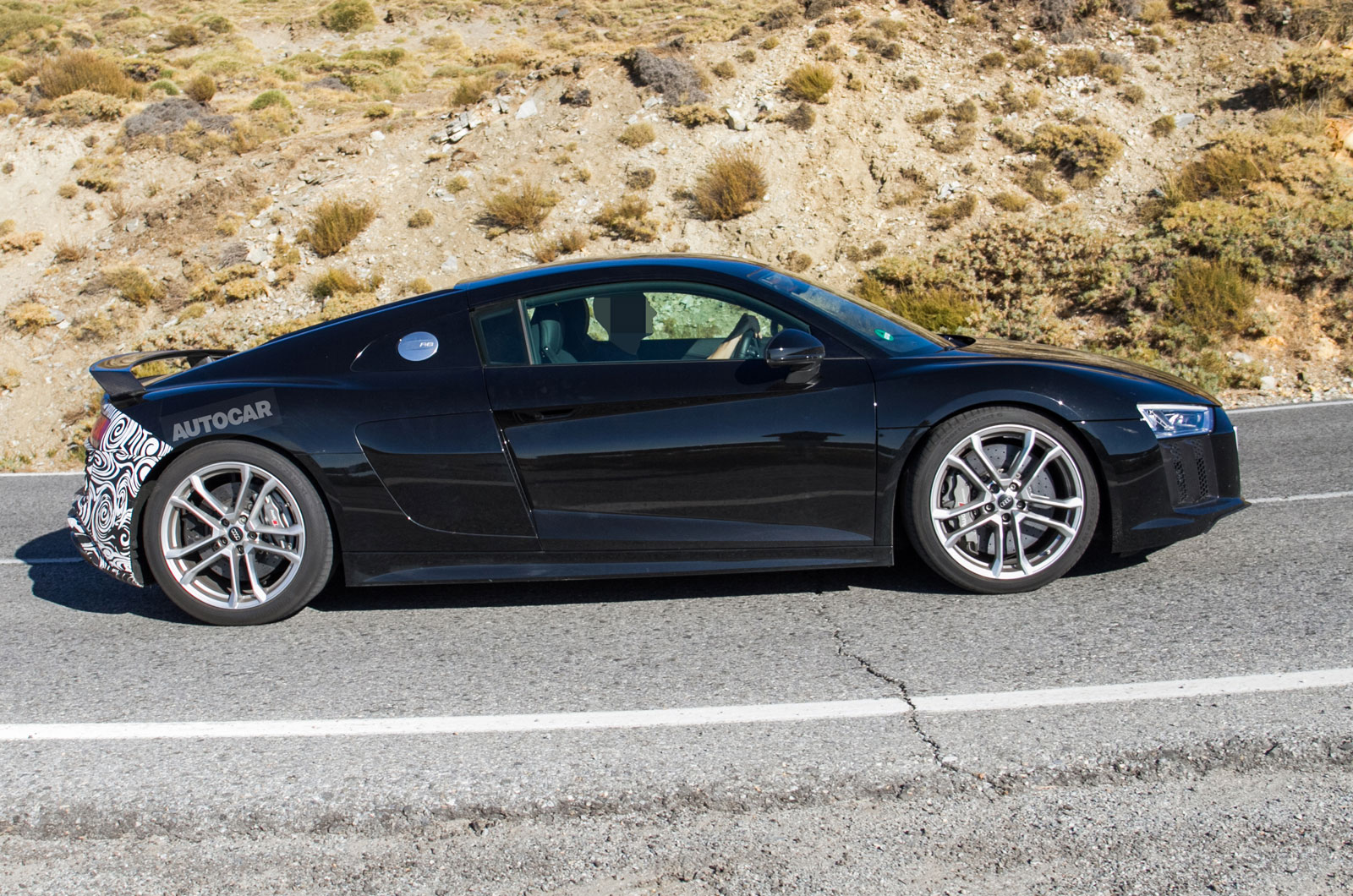
The new 2.9-litre engine differs in capacity from the slightly
larger, 3.0-litre version of the joint-venture V6 recently launched by
Audi in the new S4.
Further differentiation is found in the induction system, with the
S4’s engine using a single twin-scroll turbocharger and the 2.9-litre
version getting twin turbochargers.
The only visual cues to differentiate the V6 model from its V10
sibling, according to the spotted development car, will be smaller
exhaust baffles hidden behind the rear grilles. The former has been made
possible due to the V6's lower volume.
More content:


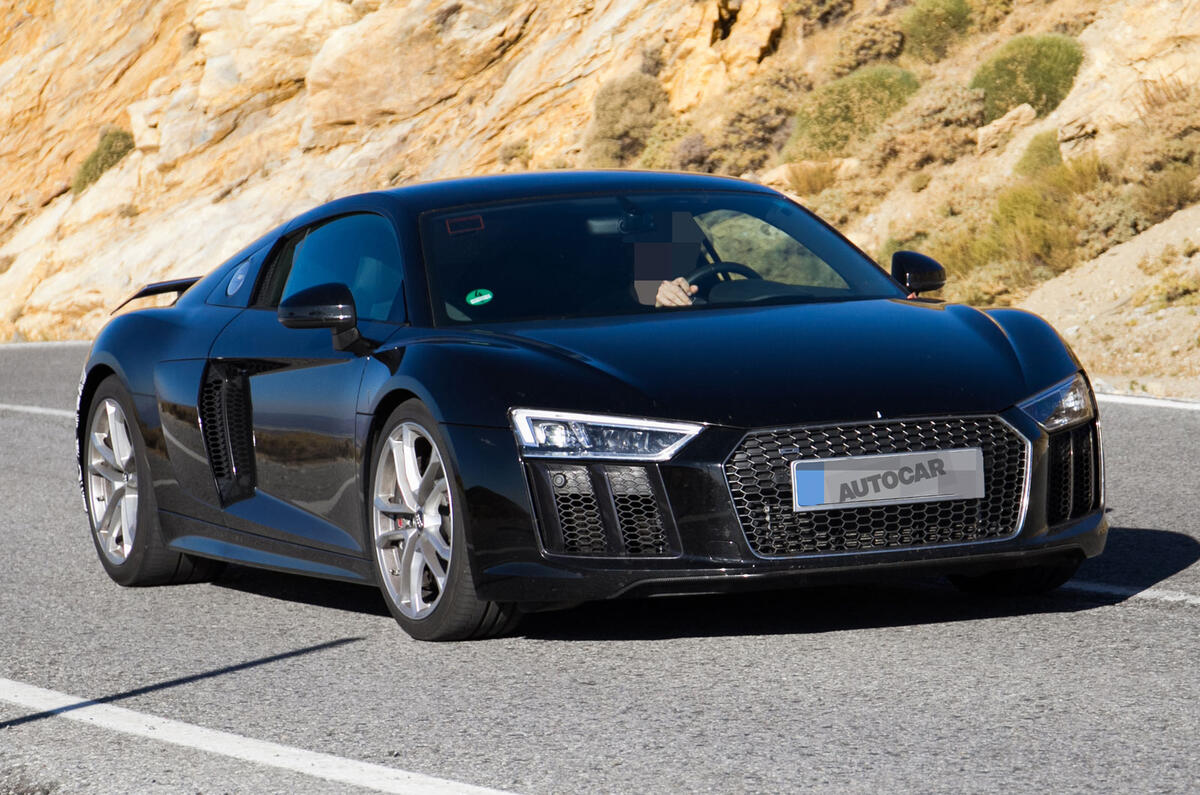
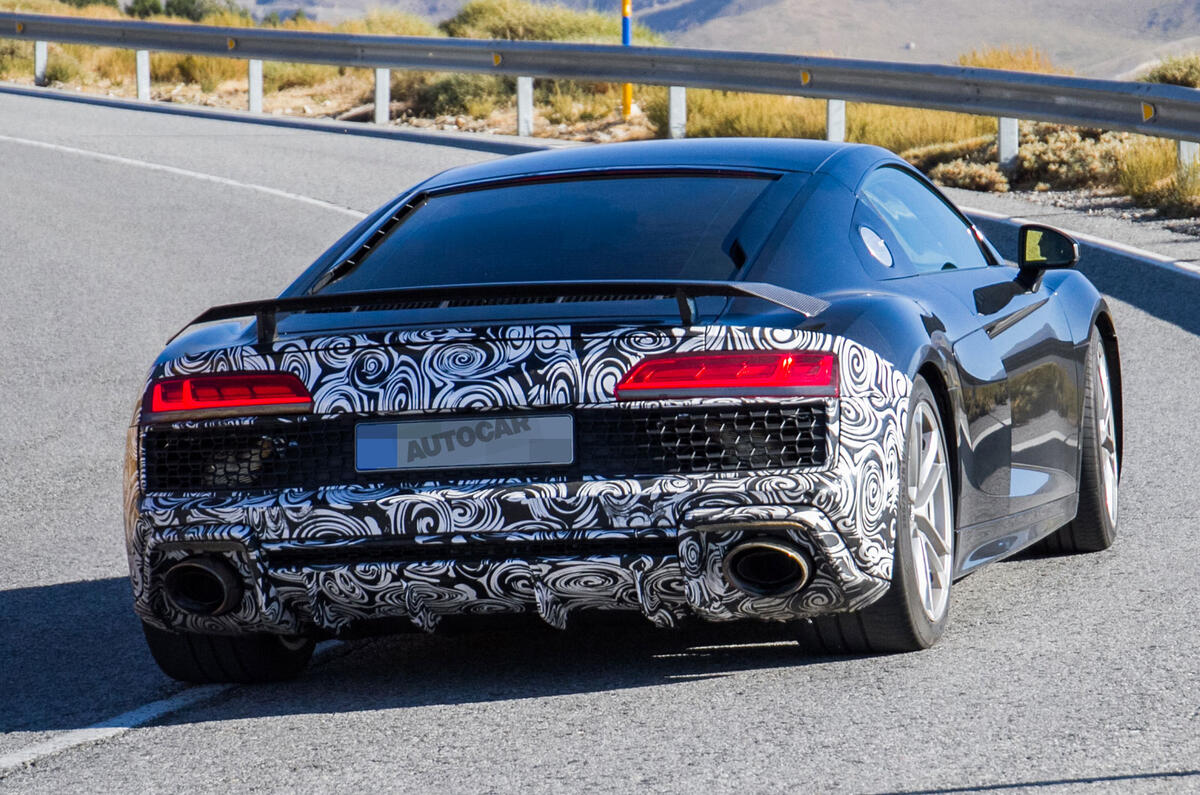
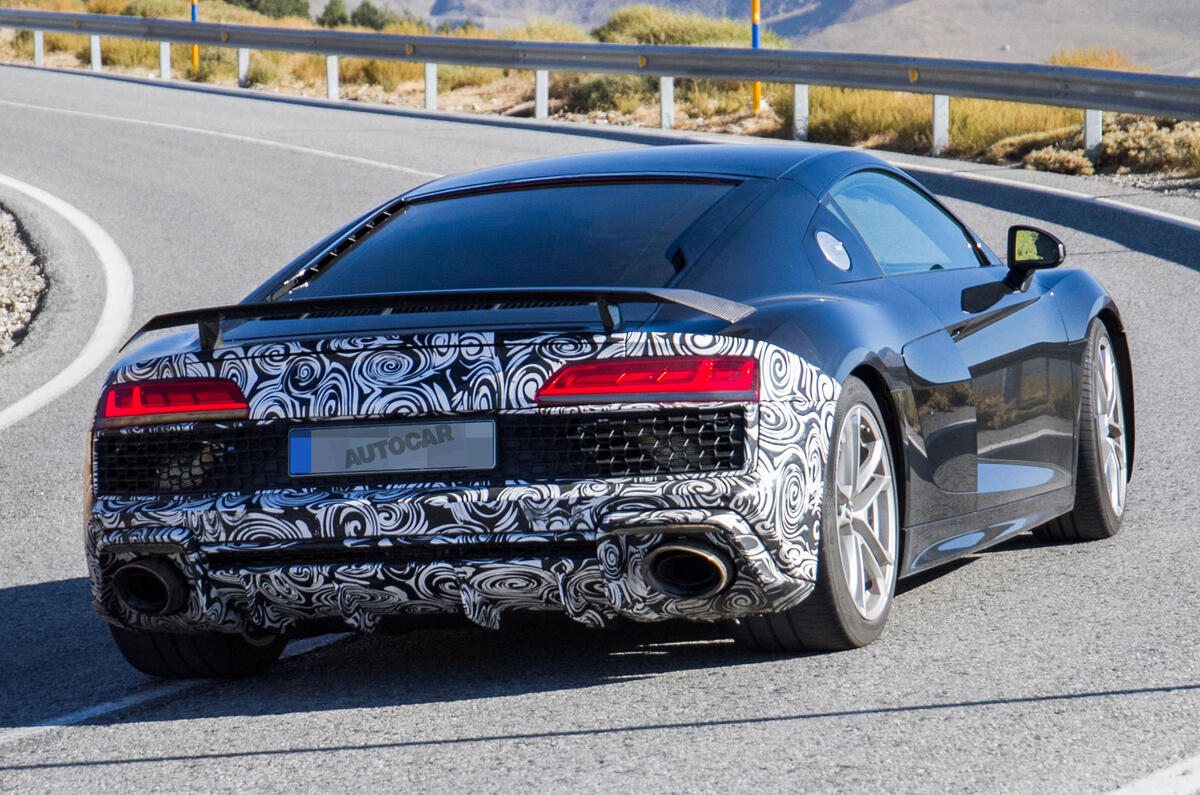
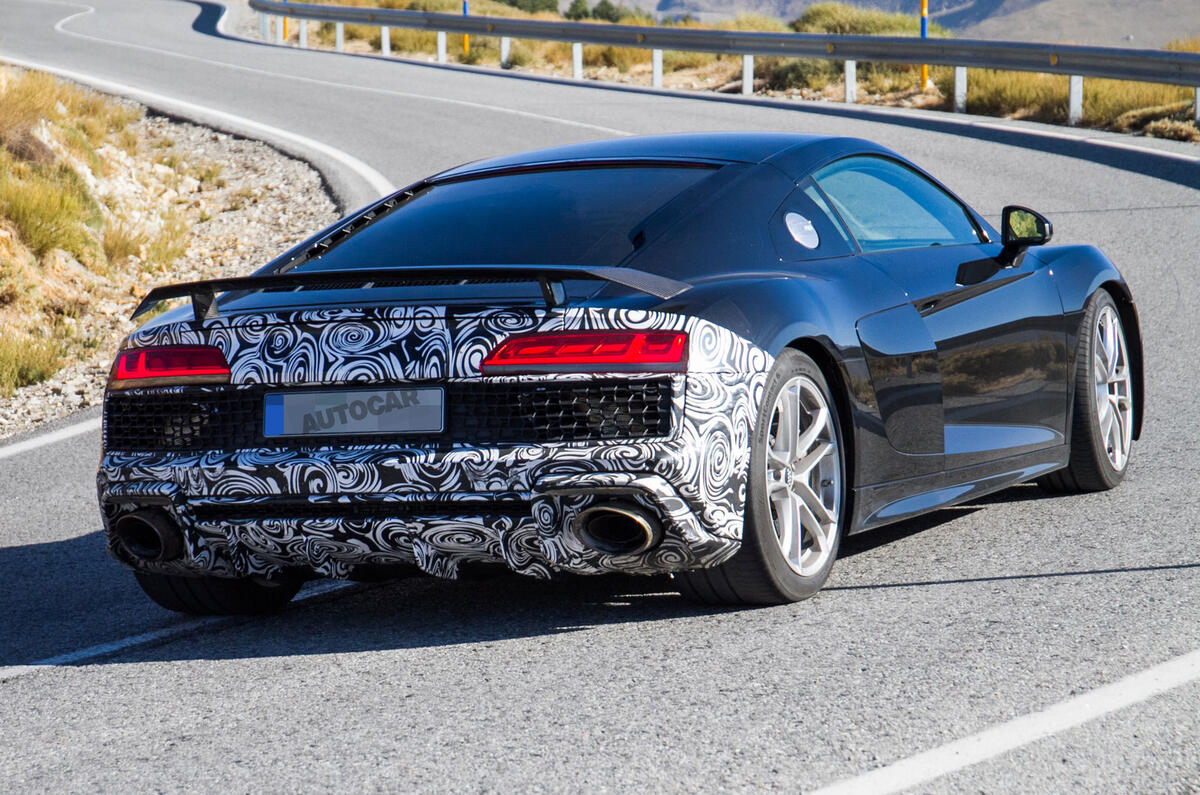
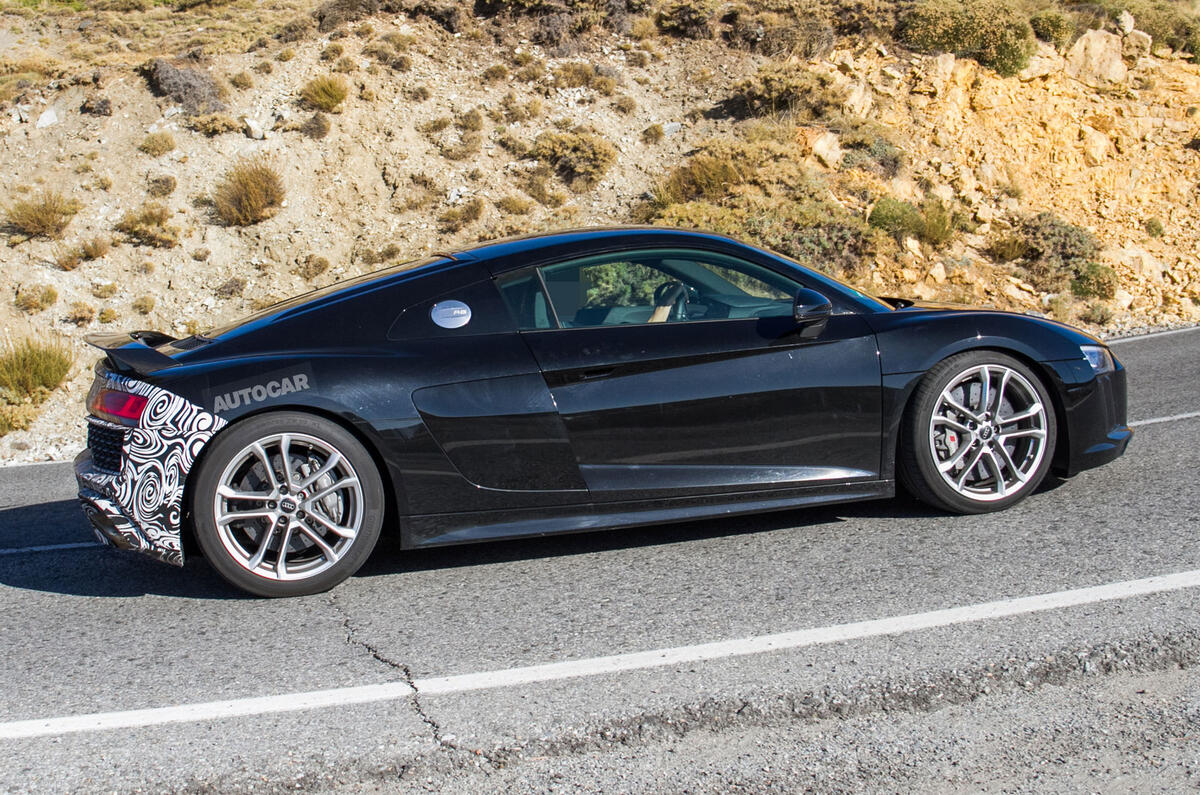
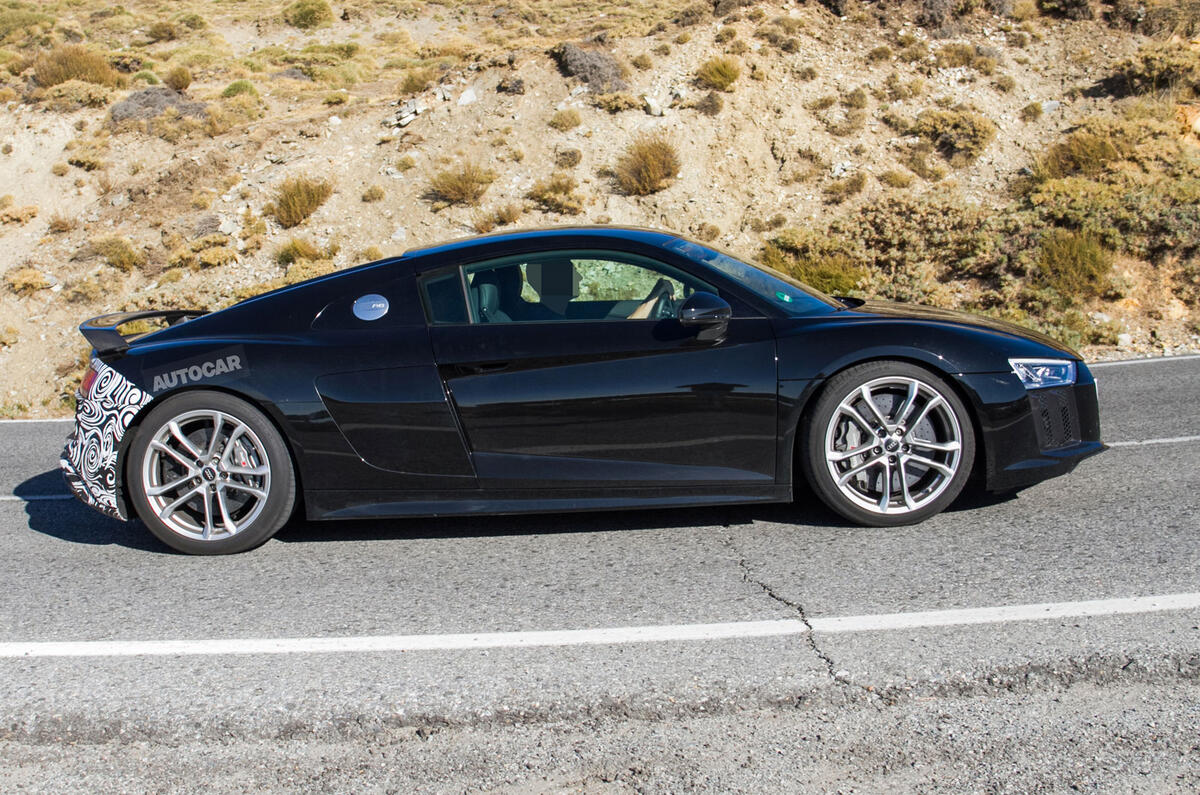
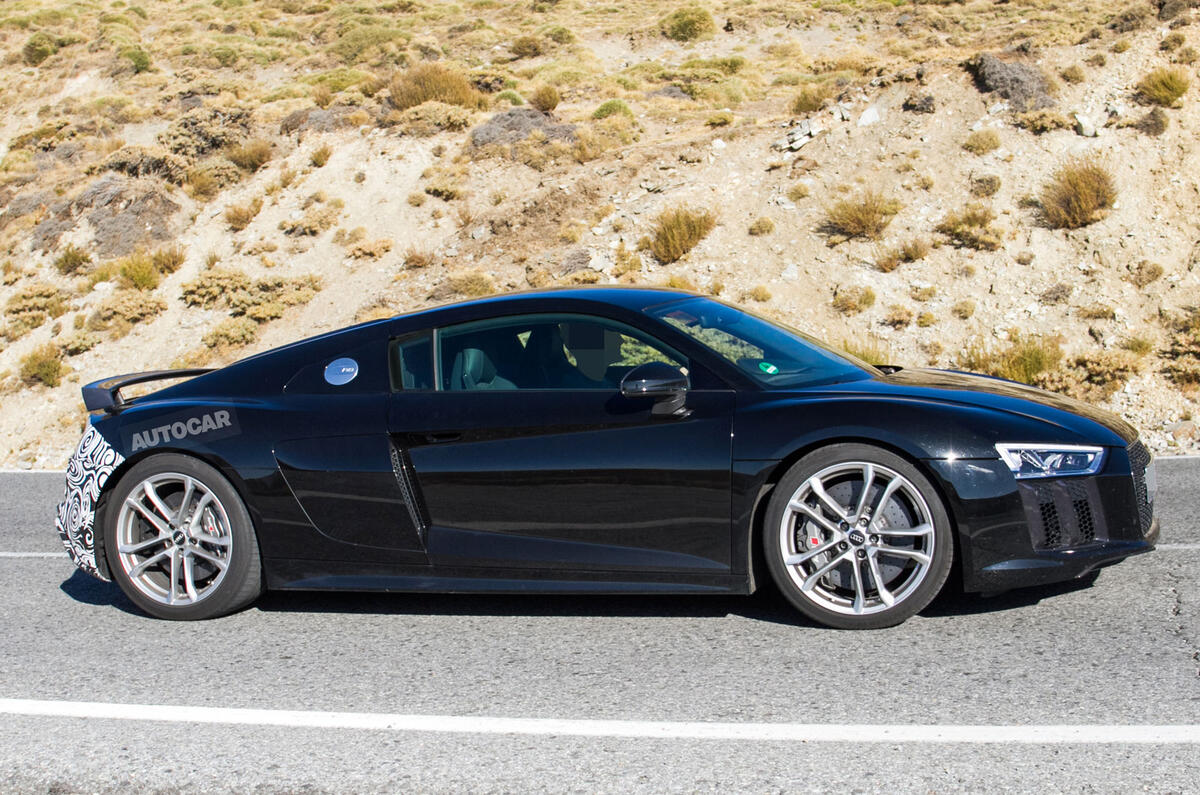
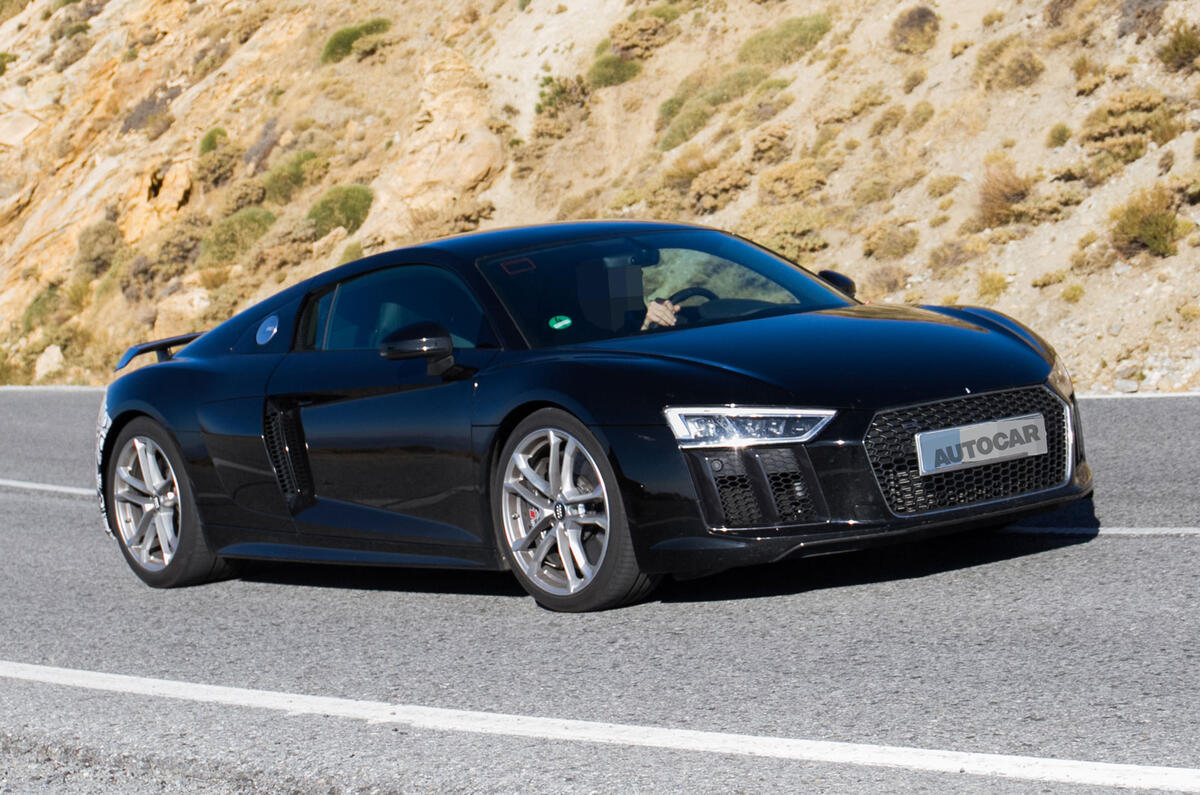
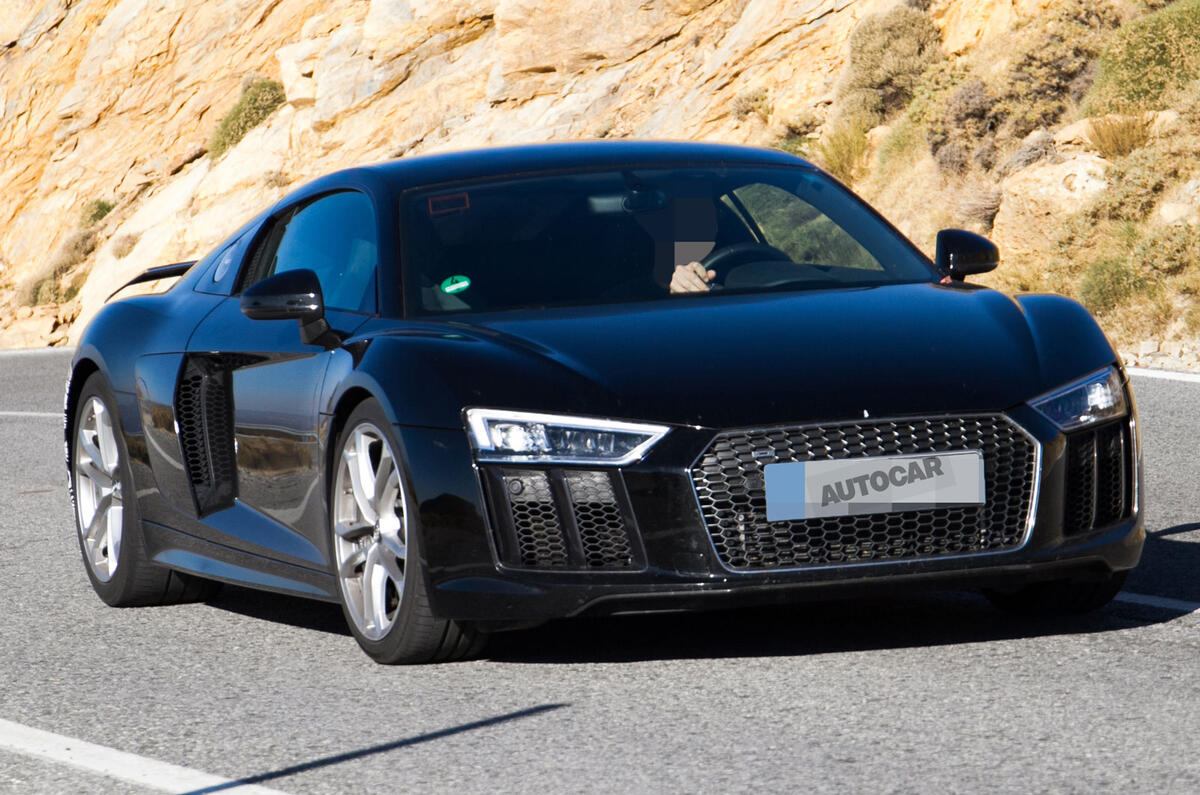
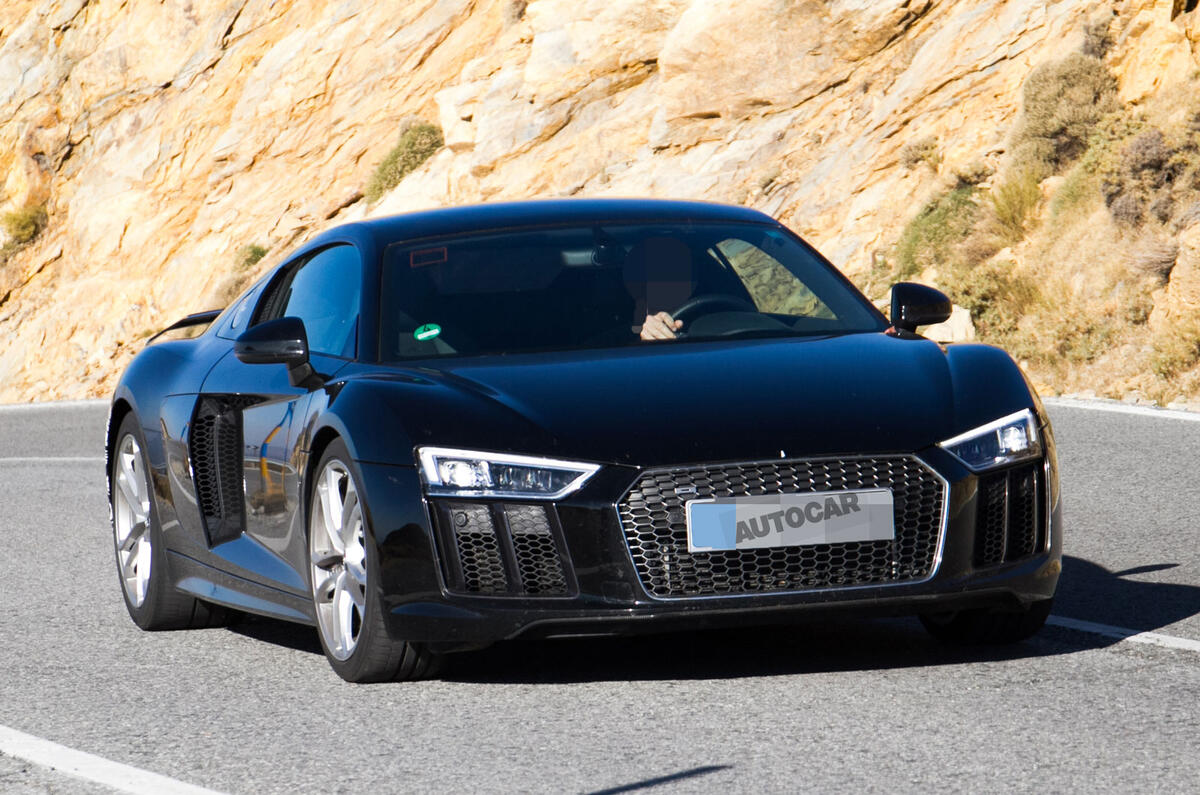
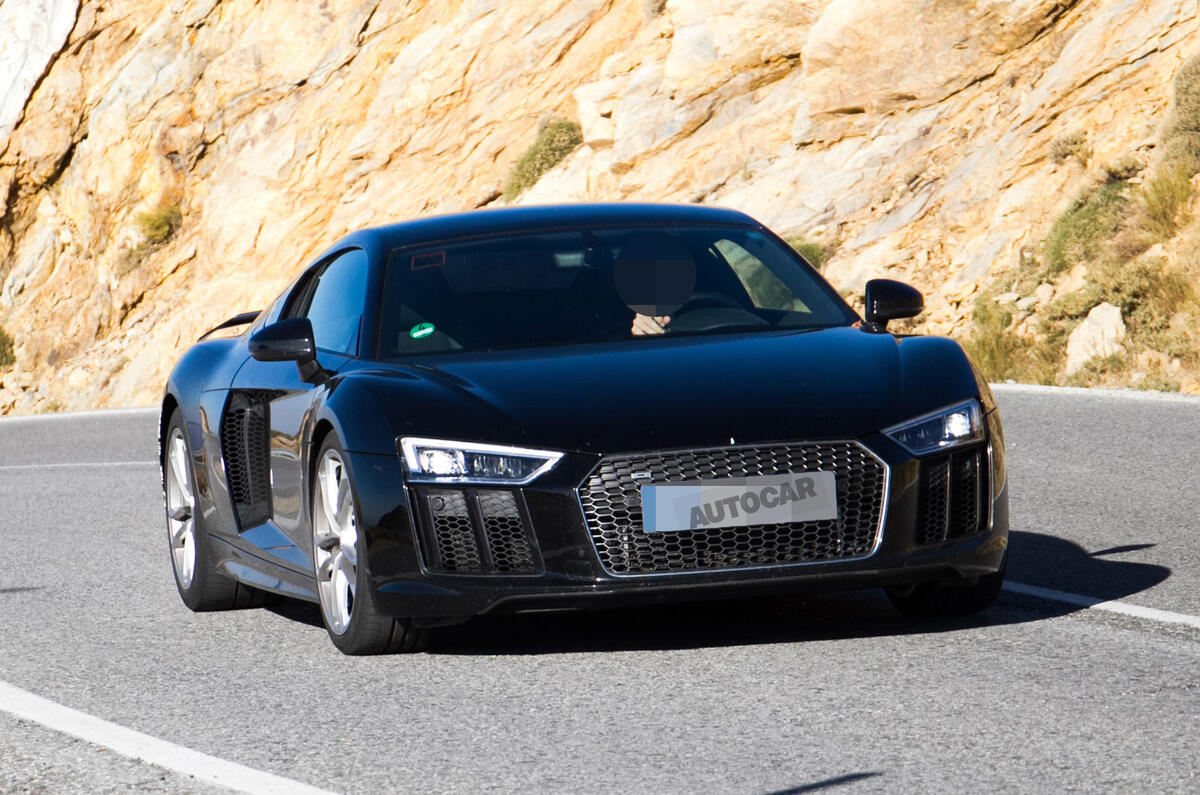
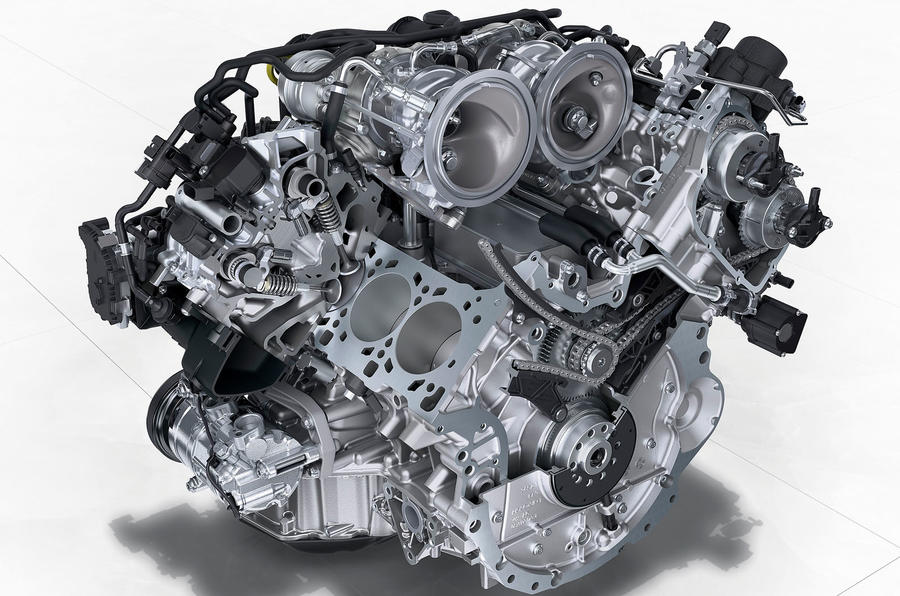
.png)
.jpg)

0 Commentaires